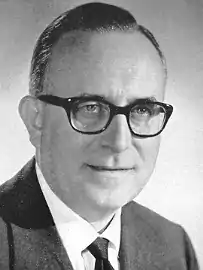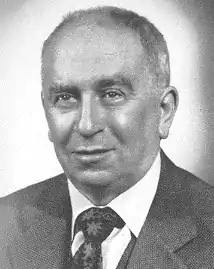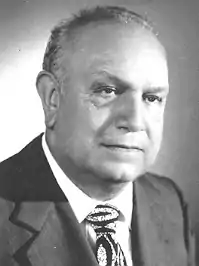1968 Italian Senate election in Lombardy
Lombardy elected its fifth delegation to the Italian Senate on May 19, 1968. This election was a part of national Italian general election of 1968 even if, according to the Italian Constitution, every senatorial challenge in each Region is a single and independent race.
| |||||||||||||||||||||||||||||||||||||
All 45 Lombard seats to the Italian Senate | |||||||||||||||||||||||||||||||||||||
|---|---|---|---|---|---|---|---|---|---|---|---|---|---|---|---|---|---|---|---|---|---|---|---|---|---|---|---|---|---|---|---|---|---|---|---|---|---|
| |||||||||||||||||||||||||||||||||||||
| |||||||||||||||||||||||||||||||||||||
The election was won by the centrist Christian Democracy, as it happened at national level. Seven Lombard provinces gave a majority or at least a plurality to the winning party, while the agricultural Province of Pavia and Province of Mantua preferred the Italian Communist Party.
Background
Following the alliance between Christian Democracy and the Italian Socialist Party (PSI), which entered into Aldo Moro's centre-left governments, the PSI created a federation with another member of the coalition, the Italian Democratic Socialist Party, but it paid its toll to the Italian Communist Party, which joined its forces with the newly established Italian Socialist Party of Proletarian Unity, the former Socialist leftist wing.
Electoral system
The electoral system for the Senate was a strange hybrid which established a form of proportional representation into FPTP-like constituencies. A candidate needed a landslide victory of more than 65% of votes to obtain a direct mandate. All constituencies where this result was not reached entered into an at-large calculation based upon the D'Hondt method to distribute the seats between the parties, and candidates with the best percentages of suffrages inside their party list were elected.
Results
| Party | votes | votes (%) | seats | swing |
|---|---|---|---|---|
| Christian Democracy | 1,984,071 | 42.2 | 20 | |
| Italian Communist Party & PSIUP | 1,238,087 | 26.3 | 12 | |
| PSI & PSDI | 836,918 | 17.8 | 8 | |
| Italian Liberal Party | 397,273 | 8.4 | 4 | = |
| Italian Social Movement | 177,956 | 3.8 | 1 | = |
| Others | 70,545 | 1.5 | - | = |
| Total parties | 4,704,850 | 100.0 | 45 | - |
Sources: Italian Ministry of the Interior
Constituencies
- Senators with a direct mandate have bold percentages. Please remember that the electoral system was, in the other cases, a form of proportional representation and not a FPTP race: so candidates winning with a simple plurality could have (and usually had) a candidate (usually a Christian democrat) with more votes in their constituency.


